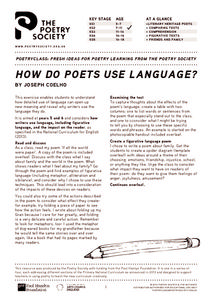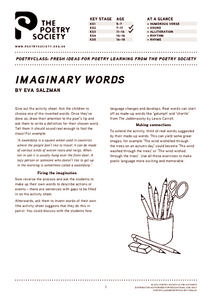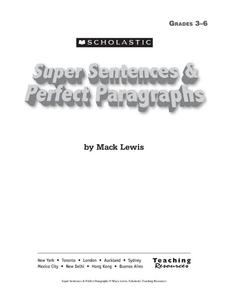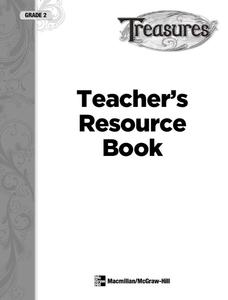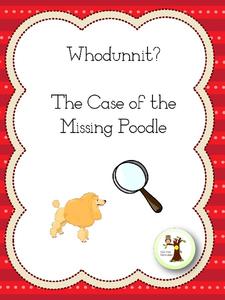Briscoe Center for American History
Mary Maverick and Texas History - Part 2
To conclude their investigation of the life of Mary Maverick and to demonstrate their ability to analyze primary source documents, groups use the SOAPS questioning method to examine Maverick's account of events in early Texas history.
Briscoe Center for American History
Mary Maverick and Texas History - Part 1
What's the difference between a diary and a memoir? Young historians explore the ramifications of this question as they learn how to use primary source materials to gain an understanding of life on the Texas frontier.
Briscoe Center for American History
Applying the SOAPS Method of Analyzing Historical Documents
Young historians use the SOAPS (Speaker, Occasion, Audience, Purpose, Subject) method of questioning to determine the historical value of primary source documents. The third in a series of five lessons that model for learners how...
Scholastic
Step-by-Step Strategies for Teaching Expository Writing
A carefully crafted, logically organized, 128-page packet is an excellent addition to your unit on expository writing.
Crafting Freedom
Frances Ellen Watkins Harper: Lover of Literacy
This, the sixth in a series of 10 related resources, examines the life and works of Frances Ellen Watkins Harper, an African American author, born in 1825, who advocated literacy for both free and enslaved African Americans.
Crafting Freedom
George Moses Horton: Crafting Virtual Freedom Through Poetry
What is "virtual freedom"? How about "enslaved entrepreneurship"? Class members will learn about these terms and much more as they read the poems and examine the life of George Moses Horton.
Crafting Freedom
Harriet Jabocs and Elizabeth Keckly: The Material and Emotional Realities of Childhood in Slavery
Learning how to make accurate inferences by putting together facts found in multiple sources is one of those skills all learners must develop, but one that can be a challenge to teach. This resource is a must-have for your curriculum...
Poetry Class
Eccentricity and Sound
What do Lady Gaga and Dame Edith Sitwell have in common? As they examine Sitwell's poetry, class members learn that the similarities are far more than their unique appearance.
Poetry Society
How do Poets Use Language?
Why do writers choose the language they do? Here's a resource that has the poet himself answer that very question. Joseph Coelho explains why he chose the words and images he used in his poem, "If All the World Were Paper."
Have Fun Teaching
The State of Things
Is it a solid, liquid. or gas? Cut out these graphics for a fun manipulative game that has kids sorting everyday items into their states of matter. They complete three worksheets referencing the sorting activity.
Poetry Society
Simile and Metaphor
Young poets use word cards to prompt a metaphor poem comparing to very dissimilar items.
Poetry Society
A Conceit Poem
Young writers needn't be self-involved to craft a conceit. Directions for how to craft this form of extended metaphor, models, and a worksheet are all included in the packet.
Poetry Society
Imaginary Words
Oh, what fun! Young logophiles and neologists create a dictionary-sounding definition for imaginary words and try to fool their classmates.
Poetry Society
War Horse and WWI Poetry
Here's a resource that deserves a place in your curriculum library. As part of their study of War Horse individuals create an anthology of World War I poetry.
Teacher's Corner
Tanka
The Tanka, another fix from of Japanese poetry, is featured in the final exercise in a 10-part series of poetry writing activities.
Teacher's Corner
Diamonte (dee-a-MON-tay)
Did you say a diamonte? Ask your young poets to craft and polish this gem of a form poem. The fifth in a series of ten poetry writing exercises.
Teacher's Corner
Cinquain (sink-ain)
The cinquain, a five line, fixed-form poem that features one subject, is the focus of the third exercise in a series of ten poetry writing resources.
Teacher's Corner
Alliteration
Calliope calls kids to craft clever creations in this, the second in a series of ten poetry sessions.
Curated OER
Poetry Assignment
As the culminating activity in a unit study of poetry, class members demonstrate what they have learned about poetry by creating a notebook containing original poems they have written, published poems they enjoy, and analyses of these...
Curated OER
Mandala Portfolio Project
Here's a great idea for writing portfolios. Kids decorate all four sides of their portfolio, introducing themselves, their families, goals, dreams, and favorite things. Detailed directions for all four panels and a rubric are included in...
Family & Children's Service
Children in Change
While children may not have the opportunity to directly affect the changes happening in their family life, help them develop necessary coping skills for expressing their emotions and dealing with those changes.
Scholastic
Super Sentences & Perfect Paragraphs
An extensive collection of lessons and activities includes many writing, grammar, and proofreading exercises. With templates and worksheets that cover several steps in the writing process, from sentence to paragraph to essay, this...
McGraw Hill
Phonics Teachers Resource Book
Looking to improve your classes literacy program? Then look no further. This comprehensive collection of resources includes worksheets and activities covering everything from r-controlled vowels and consonant digraphs, to the different...
Tick Tock Curriculum
Whodunnit? The Case of the Missing Poodle
Who purloined the poodle? Class groups read police reports and theorize whodunnit. The sixth of a ten-lesson series on mysteries.










